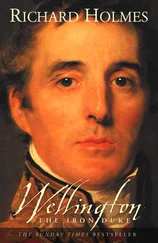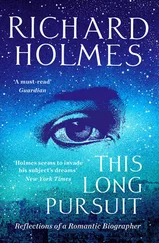1 ...6 7 8 10 11 12 ...24 Upstarts and mushrooms, proud relentless hearts,
Thou blank of Sciences, thou dearth of Arts!
Living in such a city, it seems even more remarkable that Chatterton should have spent his time engrossed in old documents, or mooning round the shadowy vaulted nave of St Mary Redcliff reading the brasses, or gazing vacantly at the then blunted spire from nearby Temple Meads. But that, we know, is what he did.
A particularly vivid account was taken by Dr Milles from William Smith, a Colston Hall friend, and brother of the Peter Smith who committed suicide. ‘Chatterton was very fond of walking in the fields,’ he recorded, ‘and particularly in Redcliffe meadows; of talking with (Smith) about these MSS and reading them to him: “You and I” (says he) “will take a walk in Redcliff meadow, I have got the cleverest thing for you that ever was: it is worth half a crown to have a sight of it only, and to hear me read it to you.” He would then produce and read the parchment. He used to fix his eyes in a kind of reverie on Redcliff church, and say “this steeple was once burnt by lightning; this was the place where they formerly acted plays” ‘ (Dr Milles, Rowley, 1782). Chatterton’s ability to bring to life and dramatize the inanimate remnants of the past, even to display them to his friends as something still magically active in the present, is an essential element in the imagination which dramatized itself as Thomas Rowley. In this, St Mary Redcliff is a central feature, a palpable proof of both historical and psychological continuity. In these last two stanzas of Rowley’s second poem ‘Onn Oure Ladies Chyrche’, one can see exactly how Chatterton brings the stone to life:
Thou seest this mastrie of a human hand,
The pride of Bristowe and the Westerne lande,
Yet is the Builders vertues much moe greate
Greater than can by Rowlies pen be scande.
Thou seest the saints and kinges in stonen state,
That seemd with breath and human soule dispande:
As pared to us enseem these men of slate,
Such is greate Conynge’s minde when pared to God elate.
[dispande – swelling, expanding
pared – compared]
and then, his anger at the cheap mercantile and mediocre ambitions of his contemporary Bristolians rises also to Rowley’s tongue and is there transformed:
Well mayest thou be astounde, but viewe it well;
Go not from hence before thou see thy fill
And learn the Builders vertues and his name;
Of this tall spire in every countye tell
And with thy tale the lazing rich men shame.
Showe how the glorious Canynge did excelle,
How he good man a friend for kinges became
And glorious paved at once the way to heaven and fame.
For this Chatterton has condensed a stanza from Spenser, but with a characteristic and brilliant addition of a final clarion alexandrine which gives a tone at once both proud and deeply nostalgic. It is interesting to note the word on which the last stress of the completed poem falls, and settles.
These qualities of pride, nostalgia and hard ambitious anger probably find their finest expression in Rowley’s ‘Ælla: A Tragycal Enterlude’ with its high chivalric story-line and firmly localized Bristol setting. In the ‘Song to Ælla’ which forms a Prologue, Chatterton suddenly creates a beautiful and haunting melodic cadence of differing line-lengths, surging outwards and falling softly back, which is so far from the automated verse-movements of the eighteenth century, and so completely and richly Romantic in its uncircumscribed flux of emotions, that one begins to see why Keats and Rossetti held him in such special reverence. The bold Gothic effect of coloured violence is uniquely Chatterton’s.
Oh thou, or what remaines of thee,
Ælla, the darlynge of futurity,
Lett this mie songe bolde as thy courage be
As everlastynge to posteritie.
When Dacia’s sons, whose haires of bloode redde hue
Like kinge-cuppes brastinge withe the morning dew
Arrang’d in dreare array
Upon the lethale day
Spred far and wide on Watchets shore;
Then dydst thou furiouse stande
And by thy valiante hande
Beesprengedd all the mees withe gore.
The best comment ever made on Rowley’s curious language and spelling is by the modernist Irish poet, Austin Clarke. How often only a poet understands how another poet has worked. Clarke said: ‘To Chatterton, these bristling consonants and double vowels were like the harness and martial gear of medieval days. Plain words, mailed in strange spellings, might move like knights in full armour amid the resounding panoply of war.’
But for Chatterton in the other mercantile Bristol, the war was bitterly direct, and the weaponry of style was brittle and contemporary. There he did not summon up the gentle imaginative influence of Spenser, but instead he turned to radical political figures like Robert Wilkes and to Wilkes’ comrade in letters, the coarse and fluent satirist, Charles Churchill. So it came about that the poet who could lie gazing in Redcliff meadows and produce the hymn to ‘Oure Ladies Chyrche’, could also within a few months produce ‘The Whore of Babylon’. This is perhaps the liveliest of his many satirical sorties, clubbing right and left with his blunt-ended couplets. The formal subject is an attack on the Bishop of Bristol, on Lord Bute, and a good selection of King George III’s more obnoxious ministers; it is packed with names and slanders and scurrilities, and lasts unflaggingly for 500 lines. Towards the end Chatterton makes a decisive attack on the attitudes he abhorred – (Rowley nodding appreciatively in the background):
The Muses have no Credit here, and Fame
Confines itself to the Mercantile Name;
Then clip Imagination’s wings, be wise,
And great in Wealth, to real Greatness rise.
Or if you must persist to sing and dream,
Let only Panegyric be your theme:
Make North a Chatham, cannonize his Grace,
And get a Pension or procure a Place.
Damn’d narrow Notions! tending to disgrace
The boasted Reason of the Human Race.
Bristol may keep her prudent Maxims still,
But know, my saving Friends, I never will.
The Composition of my Soul is made
Too great for servile avaricious Trade –
When raving in the Lunacy of Ink
I catch the pen and publish what I think.
The final couplet gives a memorable picture, although the scholar E. H. Meyerstein discovered in 1930 how extremely closely Chatterton sometimes imitated Churchill, and that the couplet in question is a rather neat summary of three lines from Churchill’s poem ‘Gotham’. Just such a scholarly point brings us back to Dr Johnson’s ‘uneducated stripling’. It demonstrates that Chatterton had always been enlarging his stock of ideas on his own. Colston Hall or Lambert’s attorney office did not really touch him. Instead, Chatterton performed his own intellectual odyssey in the circulating libraries of the town, and in the imaginative life of Thomas Rowley. ‘The dead live there and move like winds of light on dark and stormy air.’ His education was an intense and personal drama in which he entered as the major actor. Chatterton faced the idea of all passively received knowledge with gestures of derision that, from a sixteen-year-old, sting with a wholly modern arrogance:
O Education, ever in the wrong,
To thee the curses of mankind belong;
Thou first great author of our future state,
Chief source of our religion, passions, fate …
Priestcraft, thou universal blind of all,
Thou idol, at whose feet all nations fall,
Father of misery, origin of sin,
Whose first existence did with Fear begin …
That particular attack on priestcraft was probably picked up from the seventeenth-century radical political poet, Fulke Greville; another proof of Chatterton’s range, for he must have read Greville’s play Mustapha.
Читать дальше












